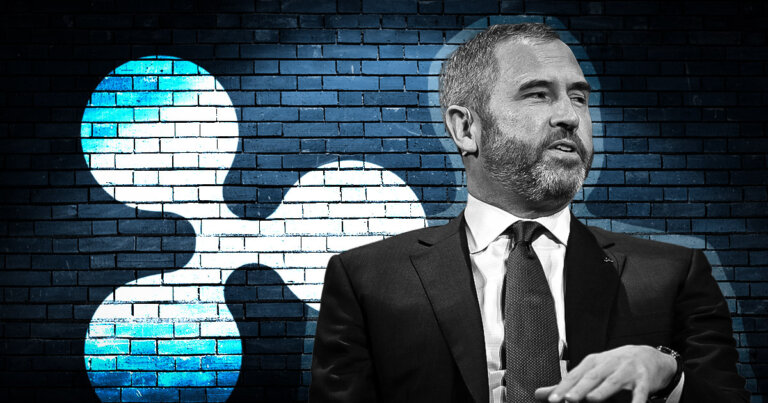 Ripple CEO criticizes SEC for stifling crypto innovation with aggressive enforcement
Ripple CEO criticizes SEC for stifling crypto innovation with aggressive enforcement Ripple CEO criticizes SEC for stifling crypto innovation with aggressive enforcement
Legal victories prompt Ripple CEO to push for regulatory overhaul in digital asset space.

Cover art/illustration via CryptoSlate. Image includes combined content which may include AI-generated content.
Ripple CEO Brad Garlinghouse said the U.S. SEC’s actions toward the crypto industry have failed in protecting investors and needs to reassess its regulatory strategy.
Speaking to CNBC’s Dan Murphy at the Ripple Swell conference in Dubai, Garlinghouse expressed concern about the SEC’s focus and questioned:
“Who are they protecting in this journey?”
The CEO said the watchdog’s enforcement approach to regulating the crypto industry has only stifled growth. He added that the industry needs a new tailor-made regulatory framework that properly considers the nuances of digital assets.
Court ruling against SEC
The criticism comes after a multi-year legal battle between Ripple and the SEC, which accused the blockchain company and its executives of conducting a $1.3 billion securities fraud by selling XRP to retail investors.
However, in a pivotal victory for Ripple in July, a judge ruled that XRP is not a security, marking a significant development in the ongoing case.
The CEO also referenced a recent victory for Grayscale, a digital asset manager, in the context of a Bitcoin ETF application. He highlighted that the federal judge presiding over the case had criticized the watchdog for being “arbitrary and capricious.”
According to Garlinghouse:
“Generally, judges tend to be pretty down the middle and try to not be dramatic — those are damning words.”
Garlinghouse said that the watchdog may finally reassess its regulatory strategy as the enforcement approach of only filing lawsuits has not worked in its favor and only led to stifling innovation in the U.S.
Federal laws needed
Garlinghouse expressed hope that the regulatory stance toward the digital assets industry will shift to a more positive note following these legal developments. He said the government needs to take a more proactive approach toward supervising the industry, starting with new digital asset laws.
He added that the U.S. must move beyond a situation where crypto regulation is determined through litigation if the industry is to thrive in the country. He called for the introduction of federal laws governing digital currencies by Congress, emphasizing the need to break away from the current regulation pattern through enforcement.
Garlinghouse reiterated that XRP should not be considered a security, emphasizing that federal laws could provide clarity and stability for the industry.
As the legal battle continues, the next key step in the Ripple-SEC case is the remedies discovery process, with the SEC having 90 days from Nov. 9 to conduct related discovery, according to a proposed schedule.



 CoinGlass
CoinGlass 


 Farside Investors
Farside Investors 























































































